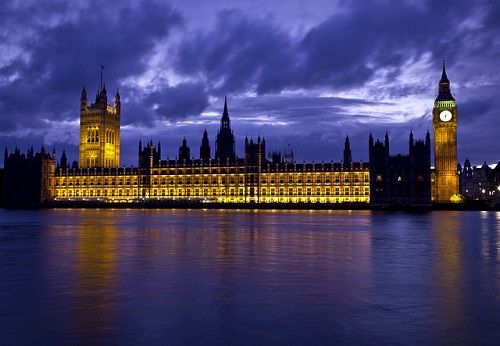UK Parliament: Diversity and Democracy
By Mufaro Makubika

On 25 October 2022, Rishi Sunak was named Prime Minister of the United Kingdom, assuming the highest political office in the land. Previously the Chancellor of the Exchequer, Rishi Sunak became the first British Asian Prime Minister and also the first Prime Minister of colour. The son of immigrants from East Africa of Indian origin, it was hailed as a pivotal milestone in the history of multi-ethnic Britain and politics. Next, a Black British Prime Minister?
In posing the question above, this blog will examine minority ethnic representation in the UK Parliament. I will do so by examining the current representation of minority ethnic MPs in the House of Commons and the evolution of that representation over time, and how that data measures up against the most recent UK census.
According to a recent 2023 report the current UK Parliament is now considered the most ethnically diverse in its history. The election of 66 minority ethnic MPs in 2019 means that 10% of current MPs are now from minority ethnic backgrounds. Also of note is the fact that Rishi Sunak’s first cabinet included 5 minority ethnic ministers (including himself).
The first contemporary minority ethnic MPs, Dianne Abbot, Bernie Grant, Paul Boateng and Keith Vaz, were elected in 1987 – the first since 1929. This moment is considered a pivotal one for minority ethnic representation in the UK Parliament. However, this quartet were not in fact the first minority ethnic MPs in Parliament, but the first post-war minority ethnic MPs to be elected. Records show that by today’s accepted definitions, it can be argued that John Stewart elected in 1832 and David Ochterlony Dyce Sombre, elected in 1841, were the first minority MPs in Parliament (although research suggests they may have been others).
In the 2021 UK census 18% of the total population in England and Wales and 3% in Northern Ireland identified as being from an ethnic group other than White (4% in England and Wales and 1% in Northern Ireland identified as black). Statistically speaking it can be argued that there should be nearly twice as many minority ethnic MPs in Parliament than there is.
The discussion then turns to what can be done to increase the number of minority ethnic MPs in Parliament. There are many factors that may have an impact on who stands for election, and who may put themselves forward as a candidate, like class and education. The starkest difference is educational qualification. Data shows almost 90% of current MPs have a university qualification and around 25% of those went to private school. If selected, minority ethnic candidates may also face barriers like racial bias and discrimination from the electorate and within the political parties they belong to.
The answer to whether there will be a Black Prime Minister is complicated. What does Black mean in this context? According to the Institute of Race and Relations, Black is defined as ‘The way that people of African descent describe themselves in countries such as South Africa, the US and parts of Europe. In the UK, the term was also used (and can still be) in a political sense by other minority ethnic groups, especially Asians, who feel that their common experience of racism outweighs cultural differences.’ That classification is wide when focusing on racialised minorities and their experiences of democracy. Other voices point to a more specific idea of Black representation based on race.
The increase in minority ethnic MPs in Parliament over time and the ascension of Rishi Sunak showed it is possible for a minority ethnic MP to become Prime Minister. It can be speculated that there will be a future Black British Prime Minister but more needs to be done to increase democratic participation among minority ethnic people.
About the writer:
Mufaro Makubika is an award-winning playwright living in Nottingham. Mufaro is currently studying for a degree in Politics, Philosophy and Economics with the OU and a Student Intern with the OU POLIS team.
Request your prospectus
![]()
Explore our qualifications and courses by requesting one of our prospectuses today.
